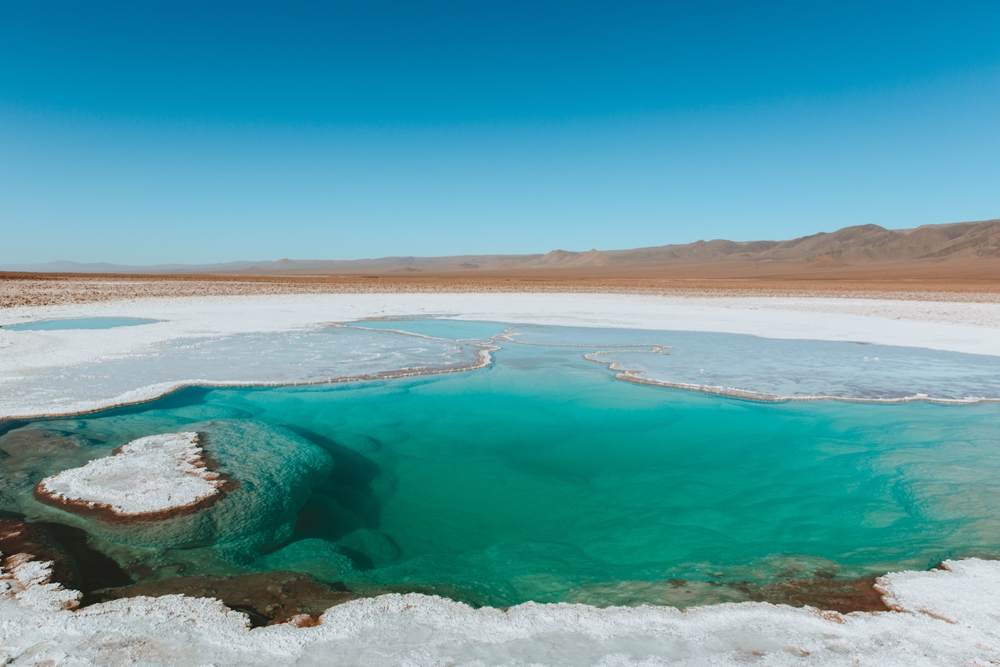Inspenet, May 13, 2023
Albemarle Corp expects to expand its lithium operations in the Atacama salt flats in Chile from 2028 with direct lithium extraction (DLE) technology under its current government contract, Ignacio Mehech, the company’s manager in Chile, told Reuters.
“Depending on the environmental and other permits that are needed in Chile, as well as the scaling technologies, we believe that (DLE) should be implemented, if all goes well, around 2028 or 2029,” Mehech said during an interview at the the company’s Atacama lithium mining operations.
Albemarle and SQM, the only two lithium producers in Chile, currently extract the metal through mass evaporation ponds of brine drawn from underground reservoirs. President Gabriel Boric has strongly promoted DLE technology. So far untested commercially, the method could preserve groundwater tables by allowing brine to be reinjected underground after lithium is mined.
Even so, DLE still requires large volumes of fresh water to filter lithium from the underground brine. A DLE process developed by Bill Gates-backed Lilac Solutions, for example, uses 10 tons of water for every ton of lithium produced.
Lack of water
Water is a hot topic in Chile, which is suffering from a long drought, especially in the Atacama desert. In one of the driest areas in the world, mining’s use of water can put companies at odds with indigenous communities and threaten populations of flamingos and other wildlife.
“We need to get water from other sources,” Mehech said, adding that Albemarle signed an agreement with CRAMSA, a local company looking to build a desalination plant in northern Chile and infrastructure to bring desalinated water to the region.
“If more partners join, because our demand is not enough, we could secure desalinated water for the Atacama basin,” Mehech said, adding that Albemarle Corp’s demands satisfy 500 of the 8,000 liters per second the company needs to supply the area.
As far as brine reinjection is concerned, Mehech said Albemarle Corp has obtained environmental permits and plans to have completed a pilot reinjection program by the end of the year.
“With the results that we generate from this pilot program, we are going to start a second, larger pilot campaign to have more certainty about how the reinjection should be done in the Atacama salt flat,” he added.
This would allow Albemarle Corp to increase lithium production under its current agreement with Corfo, Chile’s state development agency with which the company has a contract until 2043, it added.

Lithium in Chile
Boric announced a sweeping plan last month to seize control of the country’s lithium industry through state-controlled public-private partnerships. Chile has the world’s largest lithium reserves, but lost its place as the top producer because the government failed to expand the industry.
Countries around the world are racing to provide the metal needed to power electric vehicles. Boric’s announcement spooked some investors and sparked interest in competing countries like Argentina.
On Wednesday, lithium producers Livent and Allkem announced a $10.6 billion merger with a focus on Argentina.
“If you want high-quality, low-cost lithium, Argentina is the country with the best assets,” Livent CEO Paul Graves said.
SQM and Albemarle Corp are interested in expanding their operations in Chile
Both SQM and Albemarle Corp have expressed interest in expanding their operations in Chile, but differ on when to start renegotiations. SQM’s contract expires in 2030 and the company has indicated that it will soon negotiate with Codelco, the state copper company in charge of forming the new agreements.
Albemarle Corp Chief Executive Kent Masters told Reuters last week that he is open to negotiations before 2043 and would monitor how negotiations with SQM unfold “to give us a bit of intelligence.”
Chile’s Economy Minister Nicolás Grau told Reuters the Atacama salt flat talks were going to be “defined during this government”, which ends in 2026, but Mehech sees a new agreement beyond that.
“We don’t think it’s necessary. All government actors have assured us that our contract will be honored until 2043. When the time is right, in 2038 or 2040, we will sit down to negotiate with the state,” Mehech said.
Source : https://www.rumbominero.com/chile/albemarle-chile-nueva-tecnologia-en-mina-de-litio/
Photo: ShutterStock
Don’t miss the Inspenet News at: https://inspenet.com/inspenet-tv/


